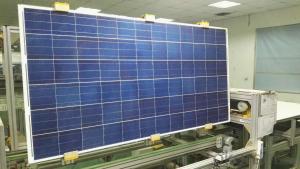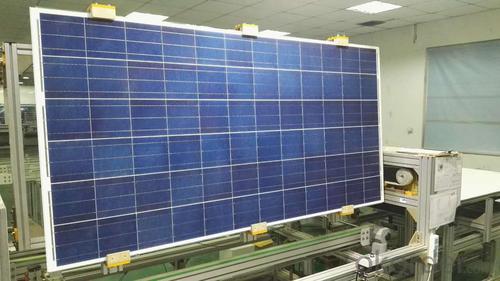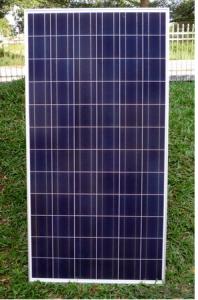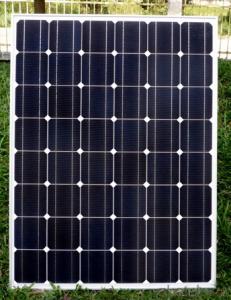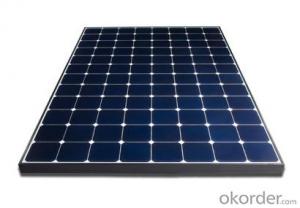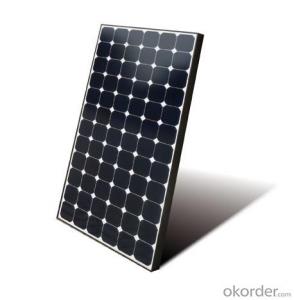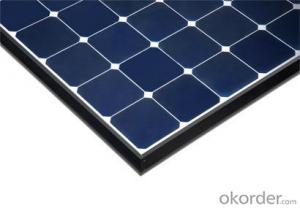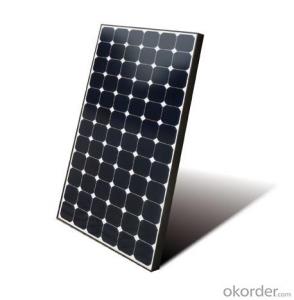Florida Solar Energy Systems - CNBM Poly 50W Off Grid Solar System with 10 Years Warranty
- Loading Port:
- China main port
- Payment Terms:
- TT OR LC
- Min Order Qty:
- 5 watt
- Supply Capability:
- 1000 watt/month
OKorder Service Pledge
OKorder Financial Service
You Might Also Like
Specification
CNBM Poly 50W Off Grid Solar Sytem with 10 Years Warranty
Product description
Off-the-grid is a system and lifestyle[1] designed to help people function without the support of remote infrastructure, such as anelectrical grid. In electricity, off-grid can be stand-alone power system or mini-grids typically to provide a smaller community with electricity. Off-grid electrification is an approach to access electricity used in countries and areas with little access to electricity, due to scattered or distant population. The term off-the-grid (OTG) can refer to living in a self-sufficient manner without reliance on one or more public utilities. People who adopt this lifestyle are called off-gridders.[2]
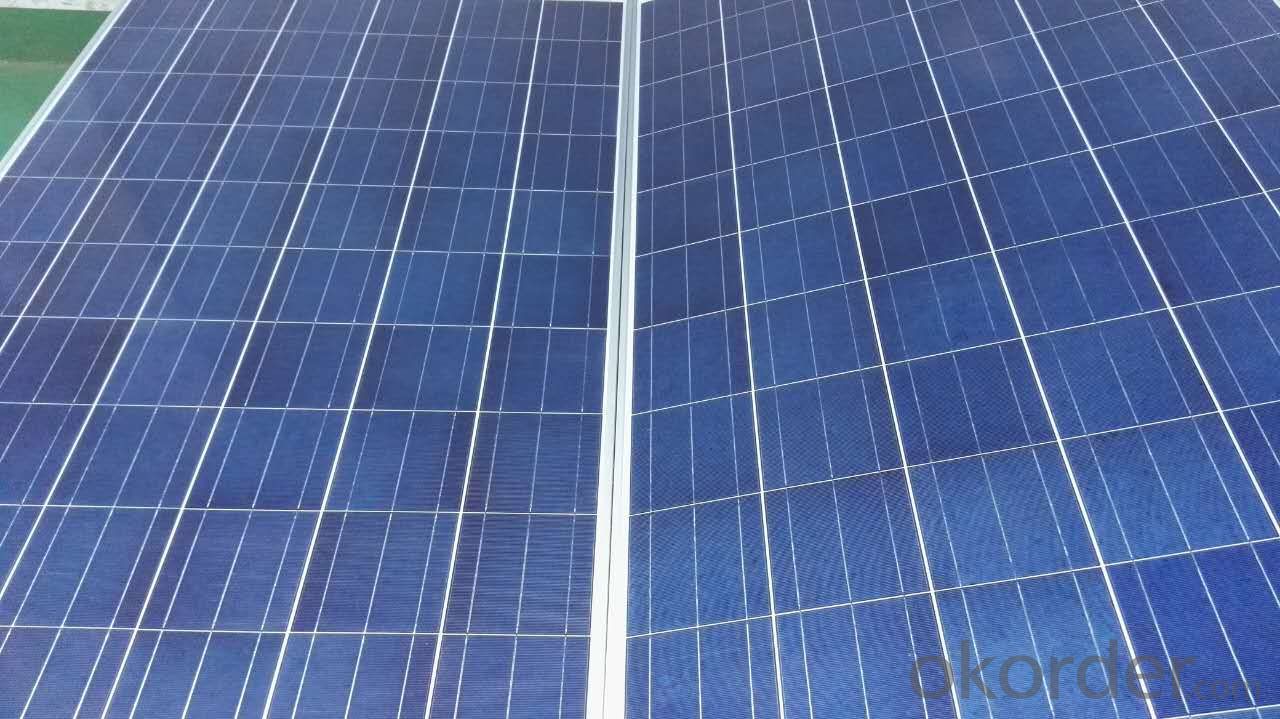
Application
Residential
Commercial
Industrial
Feature
Off-the-grid homes are autonomous; they do not rely on municipal water supply, sewer, natural gas, electrical power grid, or similar utility services. A true off-grid house is able to operate completely independently of all traditional public utility services. The idea has been recently popularized by certain celebrities including Ed Begley, Jr.[3] who stars in the Living with Ed[4] television show on the Home & Garden Television (HGTV) network. Actress Daryl Hannah promotes off-grid living and constructed her home in Colorado according to those principles, as does survival expert and Dual Survival co-star Cody Lundin,[5] who lives in a self-designed, passive solar earth house in the high-desert wilderness of Northern Arizona, collecting rainwater, composting waste, and paying nothing for utilities.[6][7]
Packaging
With carton and box
- Q: Can solar energy systems be used for powering outdoor appliances?
- Yes, solar energy systems can be used for powering outdoor appliances. Solar panels can be installed to capture sunlight and convert it into electricity, which can then be used to power various outdoor appliances such as outdoor lighting, water pumps, fans, and even outdoor cooking equipment. This helps to reduce reliance on fossil fuels and provides a sustainable and environmentally friendly way to meet outdoor power needs.
- Q: Are there any noise concerns associated with solar energy systems?
- While solar energy systems are generally quiet, there are potential noise concerns associated with certain components of the system. The most common source of noise in solar energy systems is the inverter, which converts the direct current (DC) electricity generated by the solar panels into alternating current (AC) electricity that can be used in homes or businesses. Inverters can emit a low humming noise, similar to that of a refrigerator or air conditioning unit, but the noise level is typically very low and not considered disruptive. However, advancements in technology have led to the development of quieter inverters that produce minimal noise. Some inverters are designed with noise reduction features such as soundproof enclosures or fans with low noise levels. Additionally, the location of the inverter can play a role in minimizing noise concerns. Placing the inverter in a well-insulated area, away from living spaces, can further reduce any potential noise disturbances. It's worth noting that other components of a solar energy system, such as the mounting structures or wiring, do not produce any significant noise. Solar panels themselves do not generate noise as they rely on sunlight to generate electricity rather than any moving parts. Overall, while there may be some noise concerns associated with certain components of solar energy systems, advancements in technology and proper installation practices have significantly minimized any potential disruptions.
- Q: Are there any risks of electrical malfunction or failure with solar energy systems?
- Solar energy systems come with certain risks of electrical malfunction or failure. One of the primary concerns revolves around faulty or damaged electrical connections, which can cause a loss of power generation or even spark electrical fires. Moreover, extreme weather conditions like lightning strikes or strong winds have the potential to harm solar panels or inverters, resulting in either temporary or permanent system failure. Another issue lies in the gradual degradation of solar panels over time, leading to reduced efficiency and eventual replacement. Furthermore, inadequate installation or maintenance practices may contribute to system failure or electrical malfunctions. To mitigate these risks, it is crucial to have solar energy systems installed by qualified professionals and ensure regular inspections and maintenance are conducted.
- Q: Can solar energy systems be used for powering oil and gas extraction operations?
- Yes, solar energy systems can be used for powering oil and gas extraction operations. By utilizing solar panels, the sun's energy can be harnessed and converted into electricity to power various equipment and machinery involved in the extraction process. This not only reduces the reliance on traditional fossil fuel-based energy sources but also helps in minimizing the carbon footprint and promoting sustainable practices in the oil and gas industry.
- Q: Can a solar energy system power an entire home?
- Yes, a solar energy system can power an entire home. With advancements in solar technology, it is now possible to generate enough electricity from solar panels to meet the energy needs of a typical household. A solar energy system consists of solar panels that convert sunlight into electricity, an inverter that converts the DC electricity generated by the panels into AC electricity for use in the home, and a battery storage system to store excess energy for use during cloudy or low sunlight periods. The size and capacity of the solar energy system will depend on the energy requirements of the home. Factors such as the number of occupants, energy consumption patterns, and the availability of sunlight in the area will determine the number of solar panels needed. It is essential to conduct a thorough energy audit to determine the appropriate system size. By installing a solar energy system, homeowners can significantly reduce or eliminate their dependence on the traditional electrical grid. In some cases, excess electricity generated by the system can be sold back to the grid, leading to potential cost savings. Additionally, solar energy is a clean and renewable source of power, reducing carbon emissions and benefiting the environment. However, it is important to note that the efficiency and effectiveness of a solar energy system can be influenced by various factors such as the location and orientation of the panels, the amount of sunlight available, and the weather conditions. Therefore, it is advisable to consult with a professional solar installer to design and install a system that meets the specific needs of the home.
- Q: How do solar energy systems impact the energy poverty gap?
- Solar energy systems have the potential to significantly impact the energy poverty gap by providing clean and affordable electricity to those who do not have access to reliable energy sources. Energy poverty refers to the lack of access to electricity and modern energy services, which affects millions of people worldwide. One of the key advantages of solar energy systems is their ability to generate electricity in a decentralized manner, making them suitable for off-grid and rural areas where connecting to the traditional power grid is often challenging and costly. These systems can be easily installed and are scalable, allowing for customized solutions based on the energy needs of a particular community or household. By harnessing the power of sunlight, solar energy systems can provide a sustainable and reliable source of electricity, reducing the dependence on traditional fossil fuels that are often expensive and environmentally harmful. This, in turn, helps to alleviate the financial burden on individuals and communities, as solar energy can be generated for free once the system is installed. Furthermore, solar energy systems also have the potential to stimulate economic development in energy-poor regions. By providing access to electricity, solar systems enable the establishment of small businesses, such as charging stations for mobile phones, refrigeration units for storing perishable goods, or even micro-grids to power communal services like schools and healthcare facilities. These economic activities can create job opportunities and improve the overall quality of life in these areas. In addition to economic benefits, solar energy systems also contribute to environmental sustainability. By generating electricity from renewable sources, they help reduce greenhouse gas emissions and mitigate climate change. This is particularly important in energy-poor communities that often rely on traditional energy sources, such as kerosene lamps or diesel generators, which emit harmful pollutants and contribute to air pollution. In conclusion, solar energy systems have a profound impact on the energy poverty gap by providing clean, affordable, and sustainable electricity to those who lack access to modern energy services. They offer a decentralized and scalable solution that can stimulate economic development, improve quality of life, and contribute to environmental sustainability.
- Q: How do solar energy systems impact energy consumption patterns?
- Solar energy systems have a significant impact on energy consumption patterns by reducing reliance on traditional fossil fuel sources. These systems generate clean and renewable energy, thereby reducing greenhouse gas emissions and mitigating the harmful effects of climate change. Additionally, solar energy encourages a shift towards decentralized energy production and encourages individuals and businesses to become more mindful of their energy consumption, leading to greater energy efficiency and conservation.
- Q: How do solar energy systems impact global warming?
- Solar energy systems have a positive impact on global warming as they harness the sun's energy without emitting greenhouse gases. By reducing reliance on fossil fuels, solar energy systems help mitigate the effects of global warming and contribute to a cleaner and sustainable future.
- Q: Can solar energy systems be used for powering research laboratories?
- Yes, solar energy systems can be used for powering research laboratories. Solar panels can generate electricity from sunlight, providing a renewable and sustainable energy source for laboratory equipment and operations. Additionally, advancements in solar technology have made it more efficient and cost-effective, making it a viable option for powering research facilities.
- Q: Can solar energy systems be easily expanded or upgraded?
- Yes, solar energy systems can be easily expanded or upgraded. The modular nature of solar panels allows for additional panels to be added to the system, increasing its capacity. Similarly, if more energy is required, additional batteries can be installed to store excess energy. Furthermore, advancements in technology and increasing efficiency of solar panels make it possible to upgrade existing systems with new and more efficient components, improving overall performance.
Send your message to us
Florida Solar Energy Systems - CNBM Poly 50W Off Grid Solar System with 10 Years Warranty
- Loading Port:
- China main port
- Payment Terms:
- TT OR LC
- Min Order Qty:
- 5 watt
- Supply Capability:
- 1000 watt/month
OKorder Service Pledge
OKorder Financial Service
Similar products
Hot products
Hot Searches
Related keywords
